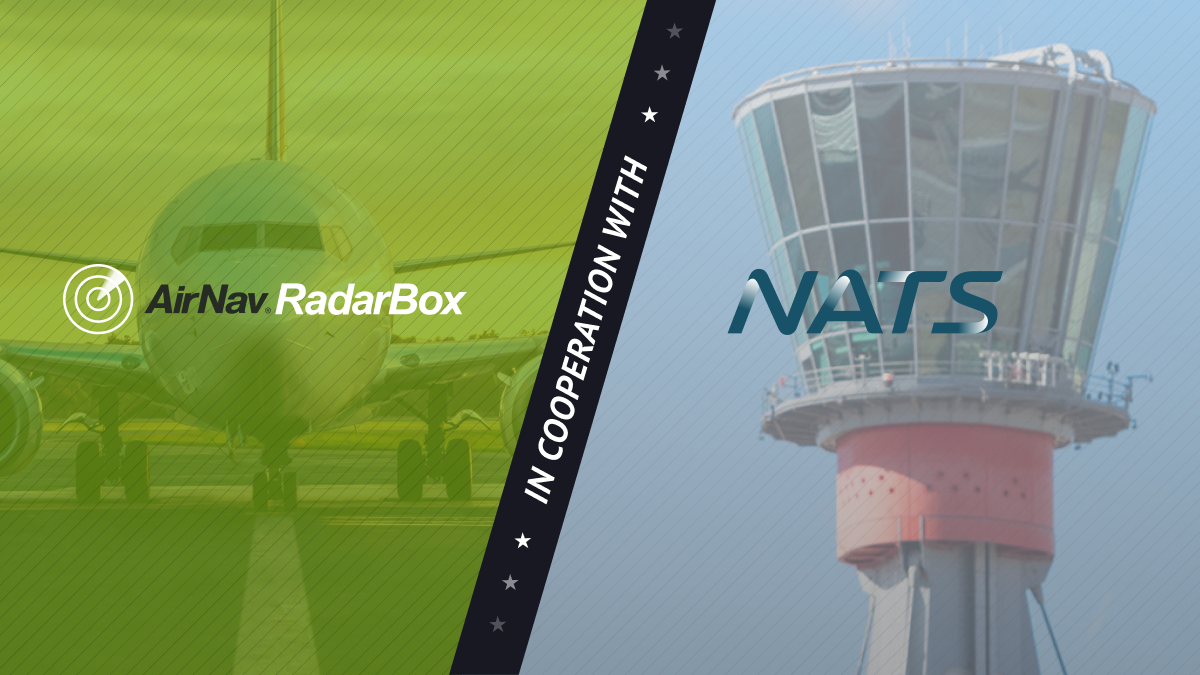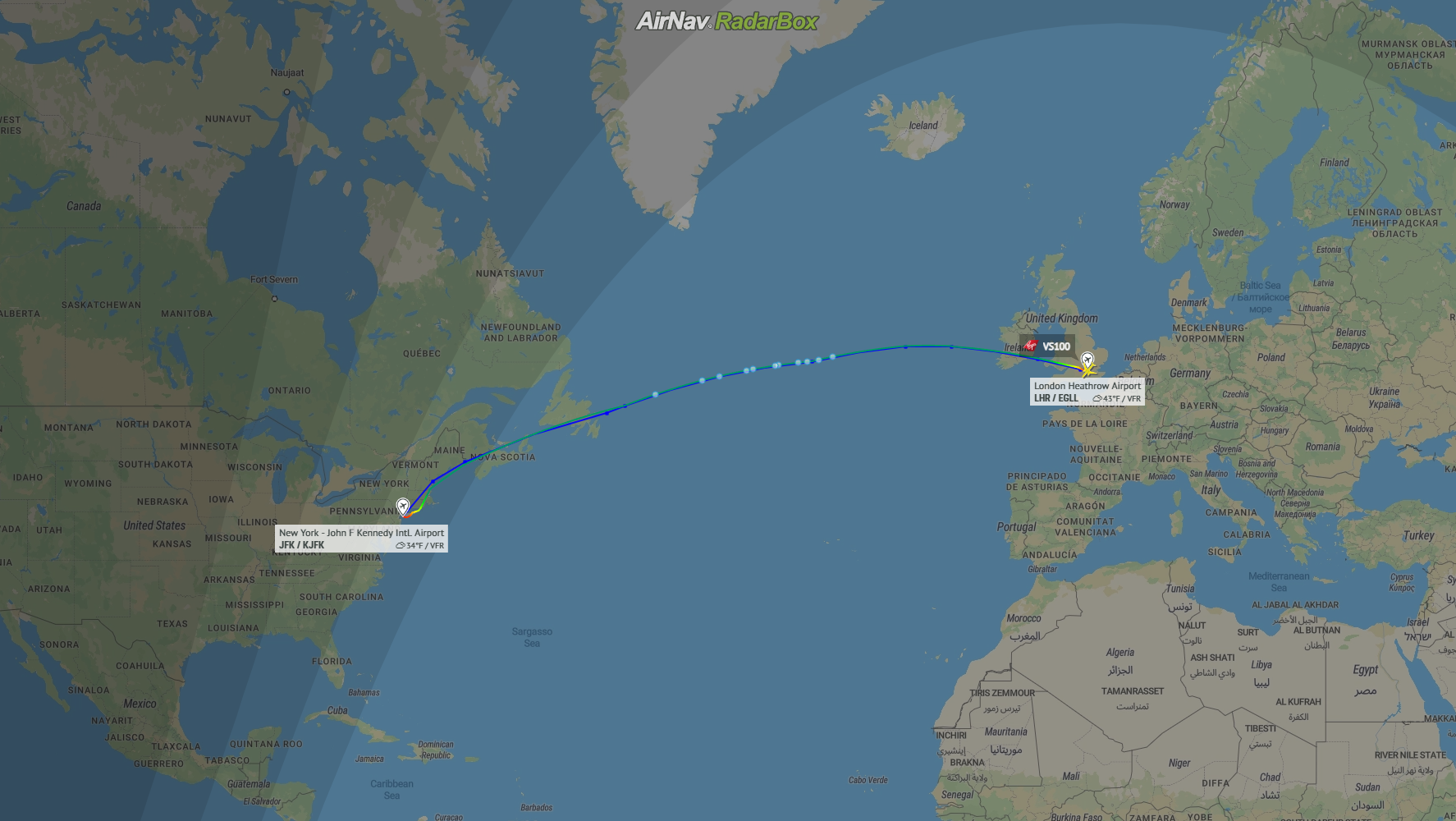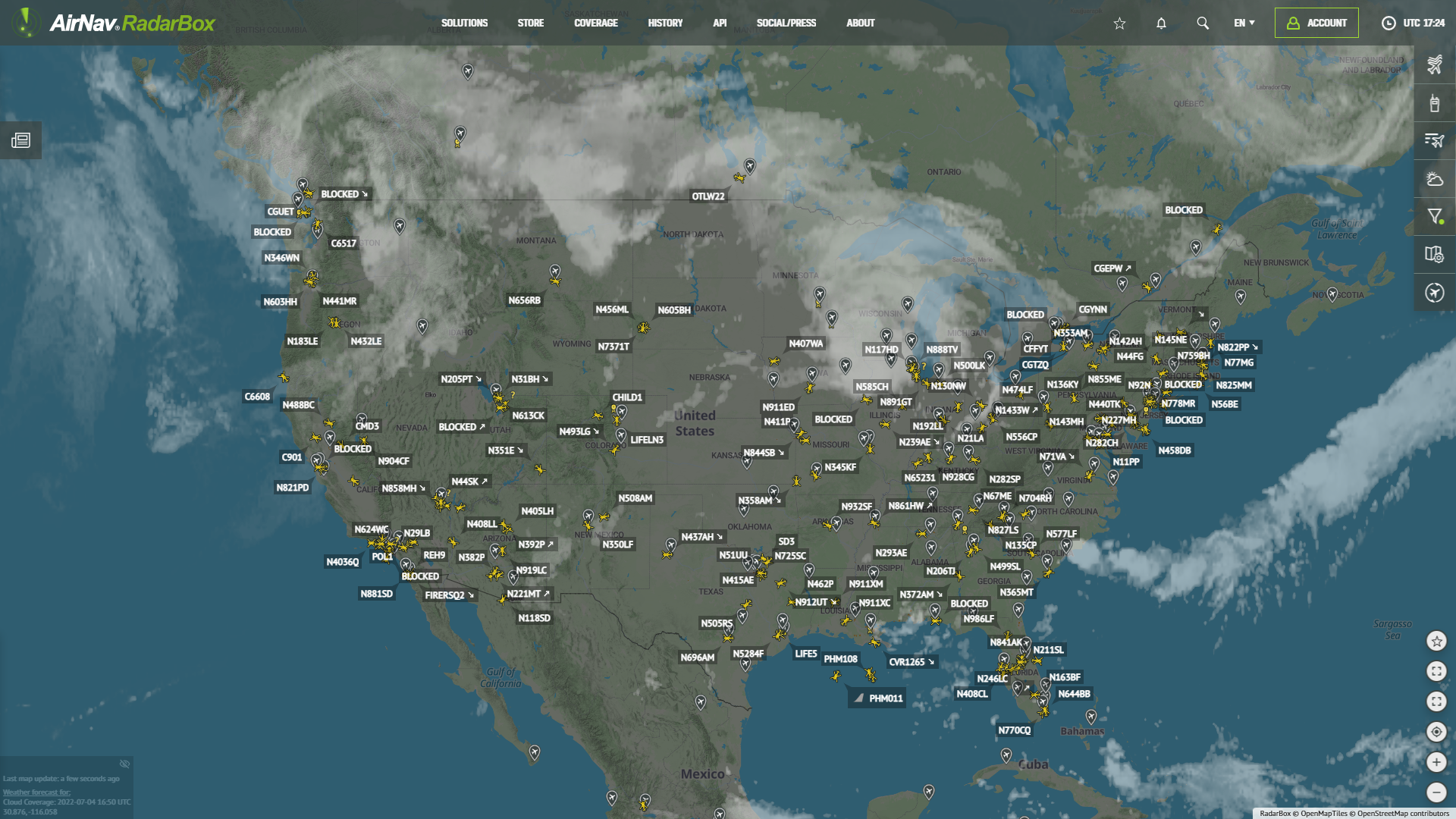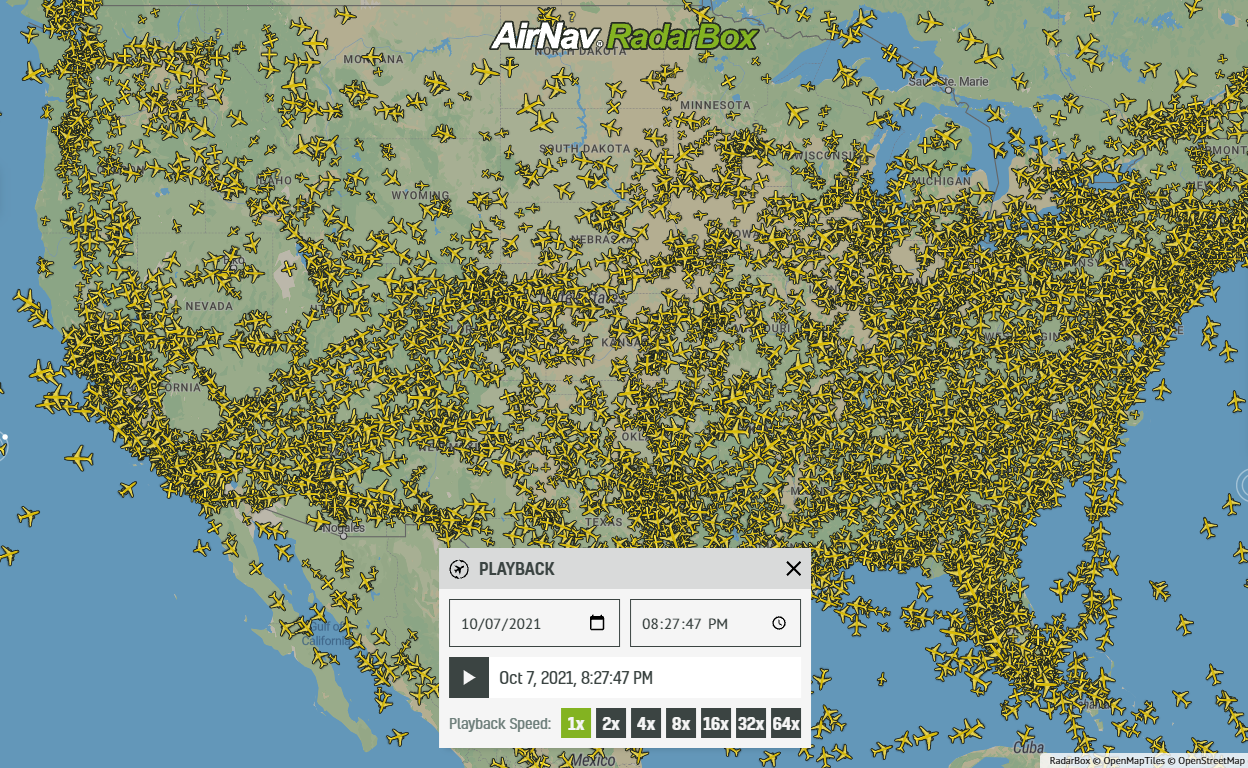AirNav RadarBox Works with NATS on Virgin Atlantic's 100% SAF Flight

Amid a global commitment to combat climate change and achieve a sustainable future, the aviation industry has found itself at a pivotal moment. With carbon emissions being a significant concern, collaboration and innovation are crucial to meet the ambitious 2050 target for Net Zero flying.

VS100's continuous climb through UK airspace - Source: NATS
Virgin Atlantic's recent milestone, flight VS100, has emerged as a beacon of hope, demonstrating the feasibility of commercial long-haul flights powered entirely by Sustainable Aviation Fuel (SAF).
Flight Details
On November 28, 2023, Virgin Atlantic's Flight100, bearing the flight number VS100, embarked on a historic journey from London Heathrow to New York. The Boeing 787-9 (G-VDIA) took off from Heathrow's runway 27R at 11:48 GMT and touched down at New York JFK Airport at 14:03 EST after a flight duration of approximately 7 hours and 14 minutes. Covering a distance of approximately 2992 nautical miles, the flight reached its destination and effectively demonstrated the potential of Sustainable Aviation Fuel (SAF) in commercial aviation.

Virgin Atlantic VS100 from London Heathrow to New York, JFK
Collaboration with NATS
Central to the success of VS100 was the collaboration with NATS, the UK's leading provider of air traffic control services. In an era where sustainable practices are paramount, NATS played a crucial role in facilitating the transition to a greener aviation future. The collaboration involved providing NATS with satellite tracking data for Virgin Atlantic Flight100, enabling the creation of a detailed flight visualization or flight path.
AirNav RadarBox's Role
AirNav RadarBox, a key player in the flight tracking industry, played a vital role in ensuring the smooth operation of Flight t100. The integration of AirNav RadarBox with NATS allowed for comprehensive tracking and visualization of the flight.
This collaboration empowered air traffic control (ATC) teams to make informed decisions, optimize routes, and contribute to a more efficient and sustainable aviation ecosystem.
NATS' Perspective
In a blog post, NATS highlighted the significance of Flight100 in the aviation industry's commitment to sustainability. The post emphasized the need for collaboration and innovation to achieve the 2050 Net Zero flying target. NATS expressed pride in supporting Virgin Atlantic's achievement and reiterated the importance of continuous learning to optimize air traffic control services.
Technological Innovations
The success of Flight 100 was a testament to the use of SAF and showcased technological innovations in air traffic control. By implementing technologies such as ADS-B and a new satellite tracking system over the Atlantic, aircraft can now be directed along the most efficient flight paths. Real-time flight optimization, a fundamental aspect of Flight100's journey, was made possible by these advancements.
Virgin Atlantic's flight, entirely fueled by Sustainable Aviation Fuel (SAF), represents a significant milestone in the aviation industry's pursuit of sustainability. The partnership between Virgin Atlantic, NATS, and AirNav RadarBox underscores the crucial role of collective endeavors in realizing environmentally friendly aviation practices. As the industry adopts innovations and dedicates itself to SAF, Flight100 stands as a beacon, illustrating the potential when the aviation community unites for a future that is both sustainable and carbon-neutral.
READ NEXT...
 78910
78910Tracking Helicopters With RadarBox
Today we'll explore how to filter and track helicopters on RadarBox.com. Read this blog post to learn more...- 30356
AirNav Announces Coronavirus Related Data & Graphics Available
AirNav Systems is providing data COVID-19 air traffic related data for analysis, study and use.  21861
21861Replay Past Flights with Playback
AirNav RadarBox officially launches the playback function on RadarBox.com, allowing users to replay the air traffic for a specific date and time in the past, within a 365-day period. Read our blog post to learn more about this feature.
